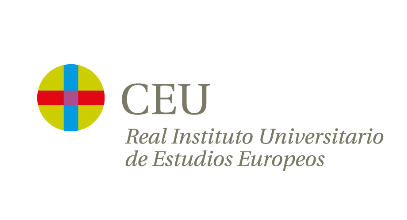– Ana Goizueta Zubimendi-
In the light of the outbreak of the COVID-19 pandemic, the main factors on which the welfare of the European Union internal market relies are suffering from a dramatic distortion. As countries have enacted closed borders and stockpiling policies worldwide, supply chains have been disrupted and the production of essential goods – primarily those relevant to mitigate the health effects of the pandemic – has ground to a halt. At the same time, the demand for these goods has drastically increased, making it impossible for health and necessity goods companies to efficiently satisfy the urgent citizens’ and hospitals’ needs.
On the other hand, in strategic sectors crucial for economic growth in many Member States, such as the airline industry, hospitality or tourism, demand has sharply dropped because of confinement measures taken by Member States and the consequent closure of businesses.
Such a worrying picture has led the European Union to enact unprecedented measures. First, in order to prevent Member States’ bans on exports – both within and out of the internal market – the Commission’s Health and Food Safety department, subordinated to Commissioner Stella Kyriakides, issued a Communication[1] on 8 April. And second, a relaxation of EU competition law has been put in place.
Commissioner Margrethe Vestager’s department of Competition has applied such flexibility on a temporary basis to articles 101 and 107 of the Treaty on the Functioning of the European Union (TFEU), two cornerstones of EU competition law to avoid cartels and discriminatory State aid and, consequently, of the good and reliable functioning of the internal market.
Account must be taken of the different nature of the relaxation of these articles. While State aid prohibited under article 107 is being permitted through the application of legal provisions that foresee extraordinary scenarios that would allow for the grant of State aid to companies; cooperation between companies is being allowed by temporarily suspending the application of article 101. The risk of and the actual shortages of essential goods so important to the fight against the COVID-19 pandemic have moved the Commission to authorize the cooperation between companies, to the “ultimate benefit of citizens”, as stated in the Commission’s communication that sets the temporary suspension of the application of article 101[2].
As a matter of fact, the Commission did not act as rapidly as it should have. By early mid-March Italy found itself with no medical material enough to face the health crisis it was living – receiving medical assistance and material from China and not from its EU partners – and it was only on 23 March when the European Competition Network (ECN) recognized in a joint statement these extraordinary circumstances and the need for cooperation between companies that would not be allowed otherwise.
Albeit article 101 aims to prevent cooperation or agreements engaged by undertakings resulting on the restriction of free competition by excluding competitors, among other effects, the ECN acknowledges that the efficiencies generated by certain companies’ cooperation are now greater than some restrictions to competition. Nevertheless, the statement points clearly out that, even in industries concerned by these measures, the ECN will take action against abuses of dominant position and cartels set up at the expense of competitive prices. It also encourages manufacturers to set maximum prices. In the same vein, on 8 April the International Competition Network published the “Competition during and after the COVID-19 Pandemic” statement.
In Spain, the National Competition Authority (CNMC) has reinforced its surveillance to potential abuses and has called citizenship to collaborate on the identification of these behaviors, through a specific mailbox for antitrust COVID-related consultations and denounces.
Special attention is being paid to the medical equipment sector, where sanitizing gels’ prices as well as ethanol’s – necessary to manufacture sanitizing gels – have significantly increased. Similarly, the CNMC is investigating some funeral companies for charging prices during the crisis that are suspicious of being the result of anti-competitive agreements between competitors or of other “hardcore” anti-competitive practices. The Spanish government has been forced to regulate the prices of the products and services likely of being abusive during this health crisis.
Commissioner Margrethe Vestager’s department has worked then on setting the details and conditions for the partial suspension of article 101, culminating on 8 April in the Commission Communication “Temporary Framework for assessing antitrust issues related to business cooperation in response to situations of urgency stemming from the current COVID-19 outbreak”.
The application of this Communication lies on the necessity, temporality and proportionality principles. In other words, cooperation can only be engaged in the light of an actual risk of or actual shortage, only while such shortage or risk persists, and it cannot go beyond what is strictly necessary to avoid it or to solve it.
Many of the collaborations that are taking place between companies would not qualify to have to comply with these conditions, given that they do not exchange sensitive information that could obstruct free competition. However, when they are obliged to share it in order to ensure supply, they must satisfy the three aforementioned principles, preventing companies from exchanging more information than strictly necessary to reach the objective and turning it into a rule.
The temporary framework mostly applies to the health sector, such as pharmaceutical companies, medical equipment producers and their distributors. But it can also apply to any other industry whose supply chain has been strongly affected. The Communication also stresses that the Commission can provide companies cooperating, and thus falling within its scope, with a comfort letter to let them know they are not in breach of article 101, although exchanging sensitive commercial information. These companies, however, have the obligation to share with the Commission everything discussed in the meetings held in relation with their collaboration.
Indeed, even before issuing this Communication, the Commission invited companies to join efforts in order to increase the production of COVID-19 medicines to cope with the rising demand. The Commission itself and the national competition authorities are providing for informal guidance to those companies that have doubts on whether their agreements are in breach or not with the temporary framework. All this must be read along with the guidelines above-mentioned issued by Commissioner Stella Kyriakides whereby the optimization of health products supply chains is compatible with such collaborations under the current circumstances.
A clear example of this is the comfort letter issued on 8 April to Medicines of Europe, an association of pharmaceutical manufacturers that is involved in the cooperation of many of them for the purpose to avoid COVID-19 medical goods shortages. This association members represent 67% of prescription medicines supplied in Europe.
Such cooperation includes the identification of production capacity and stocks and their subsequent adaptation or reallocation as well as to switch production of a site to certain medicines or to increase capacity, so as to avoid the over-production of some medicines to the detriment of other demanded COVID-19 medicines that would fall into under-production. This constitutes sensitive commercial information that is now allowed, provided that it complies with all the conditions laid down in the temporary framework, as stated in the comfort letter – namely, letting the cooperation agreement open to any other competitor willing to participate, among other conditions.
Despite the slow initial reaction of the Commission, the measures taken have been implemented in an accelerated rhythm as well as the responses to firms’ and citizens’ needs.
The behavior of the internal market has shifted in a matter of weeks to a completely adverse manner of functioning than that contemplated in the TFEU, as temporary measures also cover the restrictive policy on State aid that has been in place since the Treaty of Rome.
There is no doubt that all these measures are necessary to mitigate the pandemic crisis effects on citizens’ health and needs. However, it will be vital to monitor the behavior of cooperating undertakings once the crisis has come to an end in order to ensure the usual level playing field on which the internal market is based.
In conclusion, although the Commission did not give a rapid response at the beginning, the measures it has implemented seem appropriate to help companies cover the needs of citizens and hospitals. The understanding between public and private actors has demonstrated to be an essential factor to the fight against COVID-19.
Listado de referencias
[1] Communication from the Commission, Guidelines on the optimal and rational supply of medicines to avoid shortages during the COVID-19 outbreak, (2020/C 116 I/01). https://eur-lex.europa.eu/legal-content/EN/TXT/?uri=uriserv:OJ.CI.2020.116.01.0001.01.ENG
[2] Communication from the Commission, Temporary Framework for assessing antitrust issues related to business cooperation in response to situations of urgency stemming from the current COVID-19 outbreak, C(2020) 3200 final. https://eur-lex.europa.eu/legal-content/EN/TXT/?uri=CELEX:52020XC0408(04)
Ana Goizueta Zubimendi. Jurista internacional. Renault España.




